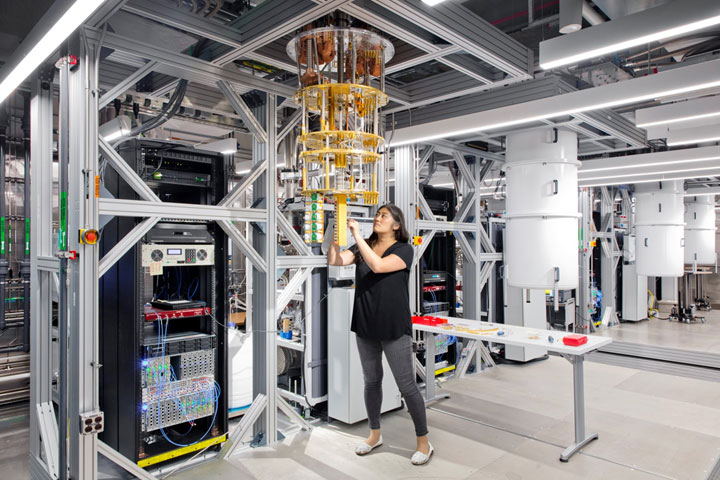Quantum computers could be a billion times faster than today’s fastest supercomputer, Frontier, the 1.2 exaflop (1018) machine installed the Oak Ridge National Laboratory. While your spreadsheets won’t run any faster, quantum computers could solve currently intractable problems, such as protein folding, and supercharge advancements in medical science. All that and more is possible by exploiting the bizarre natural properties of nature’s smallest objects using quantum physics.
Quantum physics laws describe our universe at its smallest scales and they are vastly different from our everyday classical laws of physics. Those natural laws of quantum physics seem to defy any logic and common sense. Yet the bizarre quantum physics properties of entanglement and superposition are driving a computer performance revolution. Instead of costing hundreds of millions of dollars and have footprints the size of basketball courts, a quantum computer will be relatively inexpensive and fit inside an oversized oil barrel.
If only quantum computers weren’t so fragile.
A quantum computer uses qubits (quantum bits) as its computational elements instead of the conventional computer’s bit. A qubit is usually a photon or electron in a state of superposition, a natural property where multiple states exist simultaneously. For a qubit, it simultaneously exists in a state of a one and a zero. All qubits must remain in a state of superposition, or coherence, for calculations to be accurate. However, any “noise”, or interaction with its environment will destroy its superposition, an event called de-coherence and essentially “crash” the computer. Cooling quantum computers to near absolute zero (-273° C) significantly reduces the chance of a stray object interacting with the qubit but interactions still occur. IBM’s Osprey quantum computer, which has 433 qubits, can only stay in a state of superposition for 70-80 microseconds. The challenge for researchers is to maintain coherence as long as possible. IBM’s Condor quantum computer with 1121 qubits will be introduced this year and making the de-coherence problem that much harder to solve.

IBM quantum computer.Photo credit: IBM
The potential of quantum computers is enormous, as demonstrated by Chinese researchers at the University of Science and Technology in China describing the performance of their prototype JuiZhang3 quantum computer in a paper published in the Physical Review Letter published on 10 October 2023.
In 1 microsecond their JuiZhang3 prototype, utilizing 255 photon qubits, completed an esoteric boson-sampling computation that would take 20 billion (not a typo, billion!) years for the supercomputer Frontier to complete. While boson-sampling is a special-purpose “toy” calculation to demonstrate a quantum computer’s potential, it is largely a ceremonial result and is not representative of practical future potential. Nevertheless!
As the military, governments, banking and industry are spending billions of dollars annually to solve the de-coherence problem, what will be the secondary effects of such computer power? Frontier is roughly the power of a human brain. Quantum computers could have the compute power of a billion human brains. Will coupling quantum computers with artificial intelligence eventually make quantum computers sentient?
-BDA 31.10.2023
 en
en fr
fr